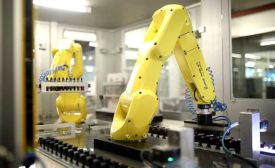Home » Keywords: » manufacturing competitiveness
Items Tagged with 'manufacturing competitiveness'
ARTICLES
U.S. Manufacturing Had an Opportunity—And We Wasted It
In the wake of COVID-related supply chain disruptions, U.S. manufacturers should rethink global supply chains.
July 28, 2020
Never miss the latest news and trends driving the manufacturing industry
Stay in the know on the latest assembly trends.
JOIN TODAY!Copyright ©2025. All Rights Reserved BNP Media.
Design, CMS, Hosting & Web Development :: ePublishing









